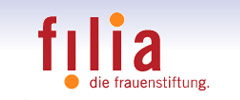Marine Litter, Plastics and Gender
The Women‘s Major Group, UNEP and WECF International invited participants to a dialogue on “Marine Litter, Plastics and Gender” on the last official day of UNEA-2 in Nairobi, Friday May 27, 2016.
01.06.2016 |

Dr. Claudia Wendland presenting the proposed recommendations of the study at UNEA-2
Plastic production is fast growing in all parts of the world while plastic waste management, demand management, and proper recycling are inadequate in many countries. Causing serious public health problems and huge environmental problems, like waves of marine litter in the oceans.
WECF was commissioned to conduct a study on the gender implications of waste management, covering the whole chain from production to waste management. The results of the study were presented before 50 attendants of the UNEA-2 side event and followed by a lively discussion, engaging all participants, on this pressing issue.

In the picture: Participants, including representatives from UNEP, discussing the study's results and recommendations.
More than 270 papers, reports, and articles were reviewed. For plastic production it was found that only little research is available on the exposure of the work force to hazardous chemicals in the plastics industry. Studies, mainly from wealthy countries, showed that both men and women can be at risk from hazardous chemicals during plastic production, usage, and disposal.
A Canadian study found that women working in the plastics industry had a five-fold elevated risk for developing breast cancer and reproductive disorders. Sperm mobility and integrity is affected by air borne exposure to hazardous chemicals in PVC pellet plants. EDCs are identified in Personal Care Cosmetic Products (PCCP), of which women are the biggest users.
When it comes to plastic management, landfilling of waste is the most common practice of municipal waste management globally. Meanwhile incineration plays also an important role in plastics management and depending on the country these practices is practiced under controlled or uncontrolled conditions. Local evidence shows that the burning of plastic at the household level is often done by women.
There is a lot of recycling practice but the EU collectively exports almost half of the plastics collected for recycling; of which at least 87% is sent to China. But there is still a dominance of uncontrolled reprocessing or manufacturing with low environmental and health standards.
The drafted recommendations for consumers as well as for policy makers in how to reduce the hazardous impact of inadequate plastic management were discussed and a very engaged and interest audience gave very valuable feedback.
The study will be finalised, published and available soon.
Contact persons
Margriet Samwel: margriet.samwel@wecf.eu
Alexandra Caterbow: alexandra.caterbow@wecf.eu
































